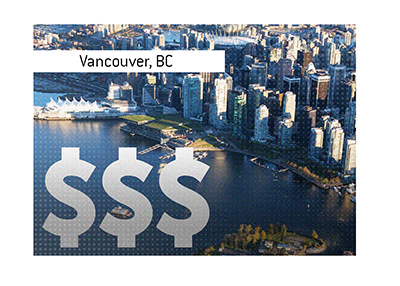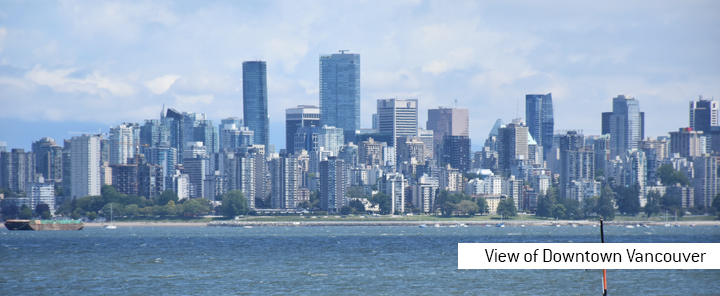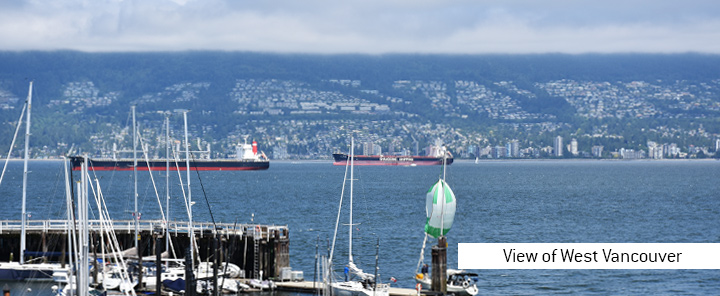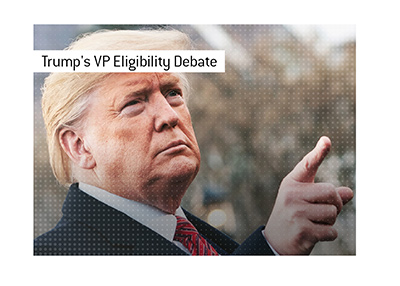Demand Almost Completely Disappears In Once Thriving Market
 There is only one word that can be used to describe the Vancouver real estate market over the past 10 years or so - ridiculous.
There is only one word that can be used to describe the Vancouver real estate market over the past 10 years or so - ridiculous. In July of 2001, a single family dwelling in Vancouver cost, on average, roughly $400,000.
In July of 2016 (roughly the peak of the Vancouver real estate market), a single family dwelling in Vancouver cost, on average, over $1.5 million.
The chart of the Vancouver real estate market didn't look like a typical real estate market - instead, it looked like the chart of a high-flying technology stock.
From the beginning of 2015 to mid-2016, the average single family dwelling in Vancouver soared by about 50%. Many new millionaires were minted along the way, while an entire generation of young Vancouverites was in danger of being permanently priced out of the market.
During this parabolic run, the BC Liberals were in power, starting with Gordon Campbell and eventually transitioning to Christy Clark. Despite a runaway market, the Liberals maintained a largely hands-off approach, as they didn't want to wipe out "billions in home equity" by implementing changes to cool the market.
When it appeared that the Liberals were in danger of losing the 2017 BC general election, they started to talk tougher on the housing market, but it was too late - Christy Clark was toppled and replaced by a NDP/Green coalition that promised to get tough on runaway housing prices in British Columbia.

So what happened? Why did prices soar so much in British Columbia over the course of 10-15 years?
This has been the subject of much debate and hand-wringing in British Columbia (and Canada), though the main reason is the flight of capital from China and into "safe assets" abroad, such as BC real estate.
According to estimates from the Institute of International Finance, as much as $800 billion in capital has left China since mid-2014.
China has grown in leaps and bounds over the past couple of decades, though the country has instituted increasingly tightened capital controls in order to slow money from leaving the country.
Chinese nationals had to get creative in order to send their money out of the country. They would wire money into the accounts of bank managers in different countries, wire money to their kids leaving in other countries and purchase Bitcoins, just to name a few.
In some cases, Chinese nationals would apply for massive business loans in China, only to flee the country and tuck their ill-gotten money into (seemingly) untraceable assets, such as British Columbia real estate owned by numbered companies or trusts. These banks were obviously not pleased and have hired lawyers to hunt after their money in British Columbia and other places.
In other cases, Chinese nationals would fatten their pockets through government corruption and then leave before anybody caught on to them.
British Columbia ended up being the popular place for many Chinese nationals to park their money, as British Columbia offered easy access to China, as well as being politically stable and having a large popularity of Chinese-Canadians.
In addition, British Columbia was a very easy place to launder money.
There are many stories of people walking into local casinos with trash bags filled with money. They'd exchange this into chips and then eventually cash out their chips, which allowed them to mingle their dirty money with the casino's clean money.
Or, they'd go to a lawyer, set up a numbered company or trust, and buy a bunch of Vancouver real estate. There was nothing to prevent this from happening, and nobody questioned where the money was coming from.
As a result, there would regularly be open houses where the sellers would receive 40-50 sealed bids. Houses would usually sell in just one day as people desperately looked for places to park their money.
In addition, people would purchase contracts for condos that hadn't been built yet, only to flip them later for a profit. In many cases, these people wouldn't pay the proper amount of taxes on this flipping, and Revenue Canada is now looking at this area to try to extract some unpaid taxes.
There are multiple cases of university students living in $20 million houses in Vancouver, despite the fact that they make little to no income.
Here is how it would work. The kids, who were born in Canada, would receive wires from their parents, and this money would be used to purchase expensive real estate. With this set-up, as well as numbered companies and trusts, the Liberal government could say that, in fact, very little real estate in Vancouver was actually owned by Chinese nationals. In fact, this wasn't the case.
The real estate market would continue to spike, though things would be about to change.

When the NDP/Green coalition took office in 2017, the parabolic rise in the housing market immediately came to an end.
The NDP party promised a bunch of changes, many of which have already been implemented, including:
1) Increasing the foreign buyers tax rate to 20%
2) Increasing property transfer taxes on homes valued at over $3 million
3) Increasing school tax rate on homes valued at over $3 million
4) Creating a new beneficial ownership registry
5) Increasing audits, especially on pre-sale condo re-assignments
6) Introducing housing speculation tax
All of these things, in addition to the continued cold relationship between Canada and China, have contributed to a market that has come to a complete standstill in British Columbia.
One of the most chilling changes for the market is the new beneficial ownership registry, which will identify the true owners of BC real estate in a publicly accessible directory.
If you are a Chinese national that skipped on a bank loan in China, only to move that money over to BC, you are likely desperate to dump your holdings before your name turns up in the database. China has shown that they will jail people for life that have been found to have committed bank fraud, and they are looking for blood.
In some cases, the prices for high-end real estate have already fallen 35% from their 2016 peak, and there is no sign of stabilization. The reason? There is little to no demand. Open houses that were once teeming with potential buyers now sit empty.
Many owners of real estate haven't come to grips with the new reality, and they refuse to lower their prices as they believe that things will magically turn around. The problem? Who is going to buy all of these $2, $3 and $5 million houses that are currently for sale? Supply is increasing by the day and demand is non-existent.
Sellers have not yet started to panic, though that step is still yet to come. Many people are near or at retirement age, and most of their retirement is tied up in their homes. This is a game of musical chairs, and nobody wants to be left without a chair when the music stops.
This weakness has spilled over into adjoining areas, as Vancouver Island and the Fraser Valley are seeing the impact as well. Many people were planning on selling their expensive Vancouver homes and retiring to the island or Fraser Valley, and now they are stuck in their homes.
-
The NDP/Green party looks poised to win another election in two years, which would result in more pain for the BC real estate market.
Many NDP/Green party supporters have been priced out of the real estate market in BC, so continuing their full-court press is a winning issue for the coalition.
My opinion? The BC real estate market (especially Vancouver) likely has 3-4 more years of pain ahead before it starts to bottom.
Filed under: General Knowledge



